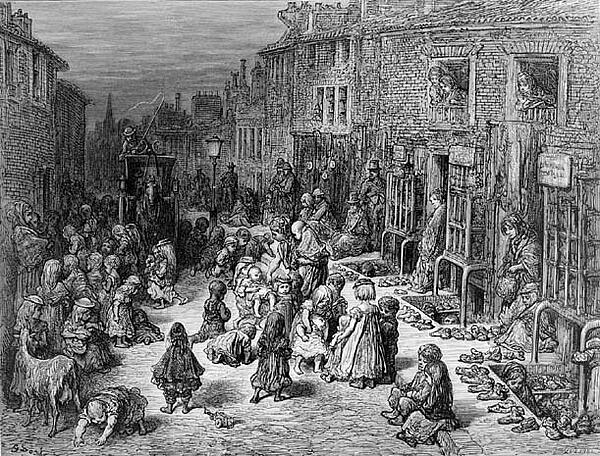Children in the Industrial Revolution
Life was tough for children during the Industrial Revolution. The proved popular because their labour was cheap and they could also be used to get to hard to reach places. The problem was that, with no means of affording education or sometimes even feed them, many parents had no choice but to have to send their children to work in the factories, mines and mills.
As there was such a great demand for labour in the cities, many families migrated from the countryside to the newly industrialised cities to find work. Factories were willing to hire children, who were often seen as a source of cheap labour. This provided families with an invaluable source of extra income, but child labour brought with it a whole range of health risks. Children were not treated well, overworked, underpaid and it took many years before the Government stepped in to improve working conditions for children.

Children could typically work for 14 hours a day in factories, often with few or no breaks. Children were also paid only a fraction of what an adult would get, and sometimes factory owners would get away with paying them nothing. Orphans were most likely to be the victim of this sort of exploitation. Factory owners would justify not paying the children because they gave them shelter, food and clothing - even though these were always substandard.
Of course, factories and mills were dangerous and frightening environments for children. Child workers experienced exhaustion and suffered with sickness and headaches caused by the noise, heat and dust in the factories.
“And when all the machines went on … I was petrified… absolutely petrified… I felt I were going to collapse where I was. I were only thirteen of course.” Child worker at Bradford Mill.
However, there were those who recognised the injustice of child labour, and fought to stop it or at least improve conditions. It was only when the Factory Act of 1833 was introduced that legislation was established to protect child workers. This Act stated that children under nine cannot work in factories. Meanwhile, any children aged between 13-18 were not allowed to work more than 12 hours a day. Young children also had to be given two hours of schooling a day.
See also: Children in coal mines in the Nineteenth Century
MLA Citation/Reference
"Children in the Industrial Revolution". HistoryLearning.com. 2026. Web.
